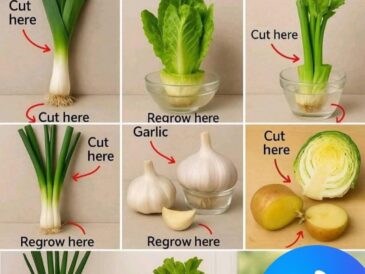Gardening is an art and science combined, a journey that millions embark on every year seeking to grow fresh, delicious, and bountiful produce in their own backyards. Among the most popular vegetables to grow are tomatoes, cucumbers, and peppers—fruits that delight with their versatility and flavor but can often challenge even experienced gardeners. Have you ever wondered how to achieve those huge, juicy tomatoes, long crisp cucumbers, and plump peppers without relying on harsh chemicals or expensive fertilizers? The secret might be simpler than you think.
Believe it or not, a single aspirin tablet, dissolved in water and applied carefully, can transform your garden’s productivity and plant health, resulting in larger fruits and more abundant harvests. This article dives deep into the science, practical application, and benefits of using aspirin in your garden. Whether you’re a novice or seasoned gardener, you’ll discover how this household staple can supercharge your tomatoes, cucumbers, and peppers like never before.
The Dream of the Perfect Harvest: Why Gardeners Struggle
Every gardener knows the frustration of seeing plants struggle despite their best efforts. Tomatoes may produce small, flavorless fruits; cucumbers might grow unevenly; peppers could fail to mature fully or be plagued by diseases. These challenges often stem from a combination of factors:
- Environmental stresses (temperature fluctuations, drought, excessive rain)
- Pest infestations
- Fungal and bacterial diseases
- Nutritional deficiencies
- Improper watering and soil conditions
Traditional approaches to overcoming these problems often involve chemical pesticides, synthetic fertilizers, and growth hormones. While these can yield results, they also carry risks such as soil degradation, harm to beneficial insects, and residue in food.
Modern gardeners increasingly seek natural, eco-friendly solutions that nurture plants from the inside out, boosting their innate defenses and promoting healthy growth. Among these emerging remedies, aspirin stands out as a surprising and accessible tool.
Aspirin: More Than a Pain Reliever — A Plant Growth Booster
What Is Aspirin?
Aspirin, chemically known as acetylsalicylic acid, is a common medication used to relieve pain, reduce inflammation, and lower fever in humans. But its story doesn’t end there.
Aspirin is a synthetic derivative of salicylic acid, a compound naturally produced by many plants as a defense hormone. Salicylic acid helps plants respond to stress, fend off pathogens, and regulate growth processes. By mimicking this compound, aspirin acts as a plant immune system booster when introduced externally.
How Does Aspirin Work in Plants?
When plants are under stress—from drought, pests, disease, or nutrient deficiency—they produce salicylic acid to activate their defense mechanisms. These include:
- Strengthening cell walls to prevent pathogen entry
- Producing antimicrobial compounds
- Activating systemic acquired resistance (SAR) — a “whole-plant” immune response
- Regulating growth hormones to optimize survival and reproduction
By applying aspirin (acetylsalicylic acid), gardeners can simulate this natural defense activation, leading to:
- Enhanced resistance to diseases and pests
- Improved tolerance to environmental stresses
- Stimulated root and shoot growth
- Increased fruit size and quality
Scientific Evidence Supporting Aspirin Use in Gardening
Multiple studies across agricultural sciences have demonstrated the efficacy of aspirin treatments:
- Disease Resistance: Aspirin-treated plants show a higher rate of survival against bacterial and fungal infections such as powdery mildew, blight, and root rot.
- Stress Tolerance: Applications improve drought tolerance and recovery from frost damage.
- Growth Enhancement: Experiments reveal increased photosynthesis rates, nutrient uptake, and accelerated flowering and fruiting.
- Yield Increase: Treated plants produce more flowers and fruits with superior size, weight, and nutritional content.
These findings confirm that aspirin isn’t just folklore but a scientifically valid gardening aid that fits perfectly in organic and sustainable horticulture practices.
Growing Huge Tomatoes, Cucumbers, and Peppers with Aspirin: Step-by-Step Guide
Click page 2 for more




